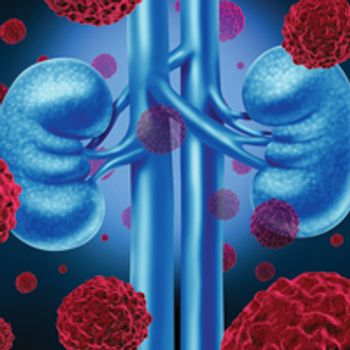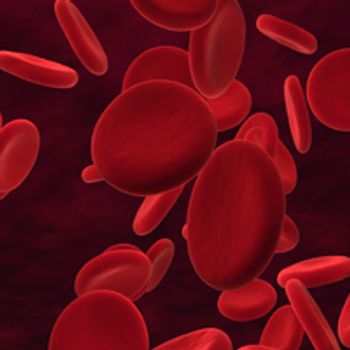
A recent study aimed to evaluate whether patients were willing and able to report their adverse events while on a clinical trial.

A recent study aimed to evaluate whether patients were willing and able to report their adverse events while on a clinical trial.


When treating patients with CAR T-cell therapy, it is important that nurses are involved in the patient education and care coordination, so patients can be fully prepared for potential adverse events.

For patients with non-small cell lung cancer (NSCLC) receiving pembrolizumab, long-term survival rates could reach 25%.

Nurse and 2016 MPN Hero Erin Blackwell discusses MPNs and personalized care for patients.

Expert Joyce O'Shaughnessy discusses current topics in breast cancer, particular the advances and future for triple-negative breast cancer (TNBC).

A recent study found that most patients are able to accurately self-report adverse events during clinical trials, if given the opportunity.

Researchers have found that the incidence of lung cancer in people who have never smoked is increasing

The FDA has granted approved maintenance lenalidomide for multiple myeloma

A recent survey found that oncology professionals are most concerned about the cost of cancer care drugs, obtaining reimbursement for other services, transparency in commercial policies and direct patient care rather than paperwork.

For the distress and depression that patients with head and neck cancer can experience, a gradual or "stepped" approach can help to improve quality of life and reduce costs.

At the University of Virginia (UVA) Health System, the enhanced recovery after surgery (ERAS) program in colorectal cancer has improved outcomes of patients after procedures and reduced hospital costs.

A recent study found that the genomic-based test Decipher can predict metastasis and prostate cancer-specific mortality from diagnostic biopsy specimens for patients with intermediate- and high-risk prostrate cancer.

A recent trial found that patients who receive telephone-based smoking cessation counseling at the time of lung cancer screening are more likely to quit smoking.

Ibrutinib has showed clinically meaningful and durable responses in patients with chronic graph-versus-host-disease (cGVHD).

Leslie R. Schover, founder of the Will2Love online resources, discusses the sexual health and fertility issues that can come as a result of cancer treatment, and how these issues can be managed. Join us for our #CureConnect tweetchat, Tuesday 2/21, on this topic.


The recent phase III OLYMPIAD trial findings show improved progression-free survival from olaparib in patients with BRCA-positive, HER2-negative breast cancer.


With their "Be the Guy" compaign, the stem cell donor registry Be the Match is encouraging healthy young men to register as a donor.

DNA from circulating tumors in patients with metastatic castraction-resistant prostate cancer (mCRPC) could assist in personalizing treatment.

A recent study presented at the 2017 Genitourinary Cancers Symposium found that use of antibiotics could damper the efficacy of checkpoint inhibitors, potentially due to the relationship between gut microbiota and antibiotics.

A recent survey evaluated the use of stereotactic radiosurgery (SRS) in radiation oncologists.

Some patients with metastatic rena cell carcinoma (mRCC) exhibited sustained responses even up to 6 months of being off the immunotherapy treatment.

A recent study suggested that intentional weight loss could decrease the risk of endometrial cancer.

For patients with recurrent prostate cancer, adding hormonal therapy to post-surgical radiation treatment significantly improves survival, according to a recent study.

An update on ACA including

A new study found that high breast density surpasses other risk factors for breast cancer.

CAR T-Cell therapy is being explored in multiple approaches to treat hematologic malignancies.

The clinical benefits and safety profiles for ribociclib remained consistent when treating both younger and elderly patients with hormone-receptor positive, human epidermal growth factor receptor-2 negative (HR+/HER2-) advanced breast cancer.